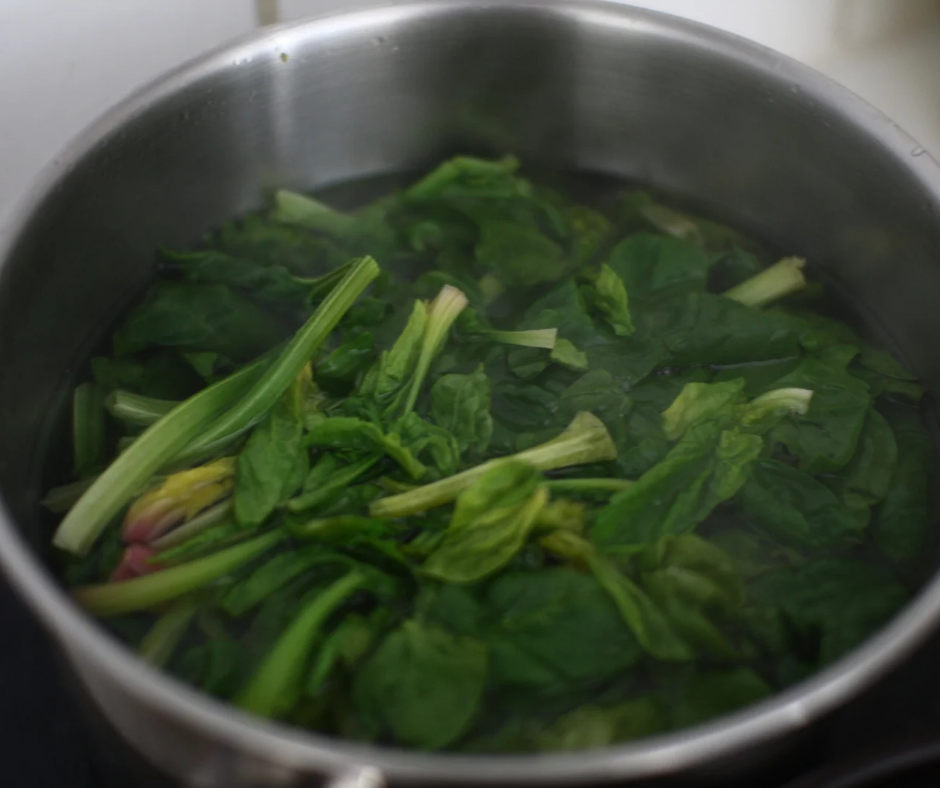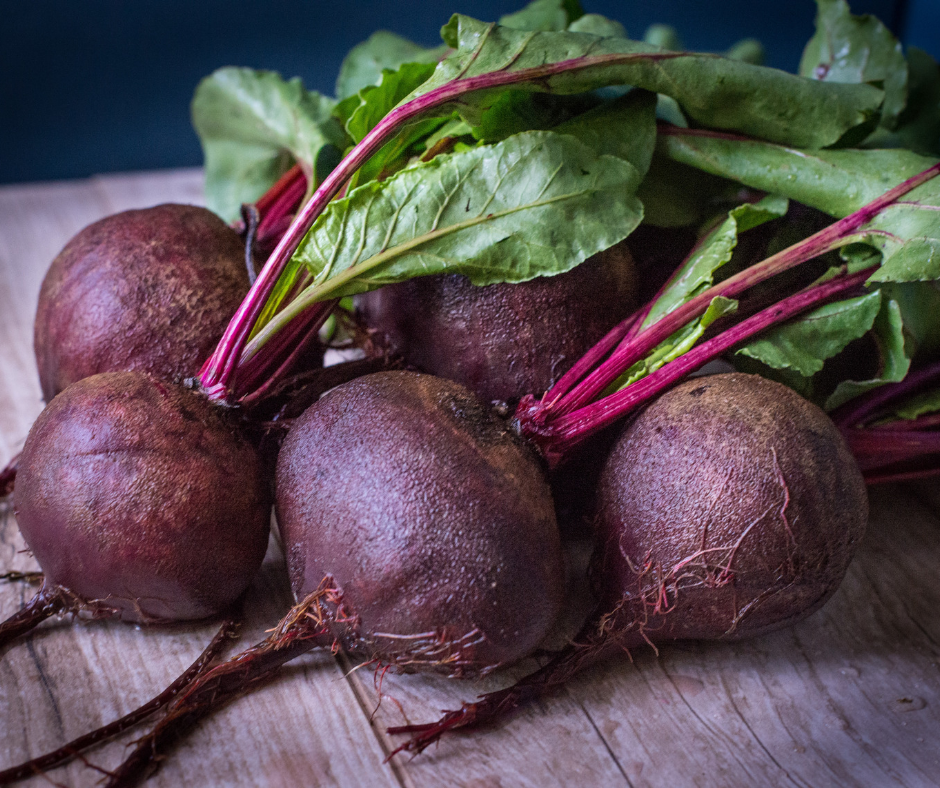In a world where extreme diets like carnivore and plant-based are taking over, the topic of plant oxylates comes up quite often. Many want to know are plants oxalates bad for us? Are they harmful anti-nutrients that we should avoid? Or do they serve a useful purpose in our diets?

What are oxalates
Oxalates, or oxalic acid, are naturally occurring compounds found in many different plants. These compounds are essentially the plant’s protective mechanism that helps to deter pests and regulate internal functions such as mineral regulation.
Although these compounds are technically there to protect the plant from being consumed, humans and animals have been eating plants with oxalates for tens of thousands of years. In fact, many wild plants that early humans ate — like wild greens, nuts, seeds, and root vegetables — naturally contained oxalates.
Archaeological evidence shows that even prehistoric diets included things like wild spinach relatives, taro, and amaranth, all of which are fairly high in oxalates. Many traditional cultures developed ways to prepare high-oxalate plants (like soaking, fermenting, boiling) to lower oxalate levels and make them safer to consume.

Plants high in oxalates
Many common health foods contain oxalates, including:
Spinach
Swiss Chard
Almonds
Cashews
Walnuts
Peanuts
Beans & Lentils (including soy)
Beets
Dark chocolate
Raspberries
Kiwi
Okra
Black Tea
Parsley
Amaranth leaves
Potatoes (especially sweet potatoes)

Oxalate benefits
Oxalates are not essential nutrients for humans, but can be synthesized by the body. This is because many plants that contain oxalates are also high in vitamins, minerals, fiber and antioxidants, which are all good for the human body.
1. Antioxidant Properties: Oxalates may act as antioxidants in the body, helping to neutralize free radicals and reduce oxidative stress. This protective role is crucial in preventing chronic diseases. Spinach is a great example of a antioxidant rich food that as high in oxalates.
2. Plant Diversity and Fiber: Many high-oxalate foods are also rich in vitamins, minerals, fiber, and phytochemicals that support gut health, heart health, and longevity. Avoiding them entirely could mean missing out on a wealth of nutrition.
3. Natural Detoxification: Some research suggests that oxalates may assist in binding to heavy metals and other toxins in the gut, helping to escort them out of the body safely. And technically, this an action they offer to plants as well.

The harmful side of Oxalates
Symptoms of high oxalates (also called oxalate toxicity) can vary depending on how much is built up and which tissues are affected. Some common symptoms include:
Kidney stones (oxalate is a key ingredient in most kidney stones). This is the most common side effect
Joint pain (oxalates can form crystals that settle in joints, mimicking arthritis)
Muscle pain or weakness
Frequent or painful urination
Digestive problems like bloating, constipation, or diarrhea
Chronic fatigue
Skin rashes or irritation
Eye irritation (burning, dryness, or even crystal deposits)
Vulvodynia (chronic pain around the vulva, often unexplained)
Bone pain
Neurological symptoms (brain fog, mood swings, poor coordination
It is important to note that many other issues and disorders can mimic these same symptoms, including heavy metal toxicity and parasitic infections. If you think that you are experiencing symptoms of oxalate toxicity, you can request a oxalic acid urine test or a plasma oxalate test from your physician. This will help rule in or out an oxalate issue.

Who is at risk
Most healthy people can eat plants that contain oxalates without any problems. The human body is designed to handle oxalates by binding them in the gut (with calcium, magnesium, etc.) and flushing them out through the kidneys in urine. However, not everyone’s body processes them as efficiently which can eventually lead to health issues. Let’s go over some contributing factors that could lead to oxalate sensitivity or toxicity.
Kidney disorders: People who have a history of kidney stones (especially calcium oxalate stones) should minimize their consumption of plant oxylates.
Born Predisposed: Certain people can be born sensitive to oxalates. According to Sally Norton and her book Toxic Superfoods, babies in utero can develop these sensitivities as a result of the mother’s consumption of oxalates. This means that you can be born predispositioned to not handling and processing oxalates like you normally should.
Human physiology, although the same, is slightly different for everyone. The human blueprint, individual genetic variations, environmental influences, and life experiences lead to unique physical and functional differences in each person. This means every human’s body will respond differently to different types of foods, medications, environmental stressors and even plant oxylates. These are all things to take into consideration if you’re someone that has been experiencing symptoms of oxalate toxicity.
Plant-based Diets: Another contributing factor is consuming a diet that is high oxalate foods like we typically find with vegan and plant based diets.
Foods such as spinach, sweet potatoes, nuts, seeds and beans are all high in oxalates, which have become staple foods for these extreme diets. The problem is that although they are considered a health foods, and they are technically good for us in the right amount, too much of them can become harmful, especially if the body is not able to process and remove the oxalates quick enough.
Sally Norton was one of the people that bought into the plant-based health craze. She spent years consuming plants high in oxylates, including sweet potatoes, which she now says was one of the main contributing factors to her lifelong health struggles. Her story as well as her research, is quite fascinating and I recommend her book Toxic Superfoods to anyone that feels oxalates could be causing issues in their own lives.
Drink Iced-Tea Daily: everyone loves a good old fashioned sweet tea, but unfortunately black tea, which is your typical iced tea, is extremely high in oxylates. In fact, many people that develop kidney stones drink a lot of iced tea. Go figure. If you must have tea, switch to green tea, which is lower in oxalic acid.
Gut Disorders: Gut issues (like leaky gut, IBD, or short bowel syndrome) can cause higher oxalate absorption in the body. Oxalates also exacerbate these conditions by increasing inflammation and disrupting the balance of gut bacteria (dysbiosis). A healthy gut microbiome is important for breaking down and eliminating oxalates, so imbalances can lead to increased oxalate absorption.
Have a rare condition like Primary Hyperoxaluria(PH): A genetic disorder where the liver doesn’t produce enough of a protein to break down oxalate, leading to its buildup and excretion in urine. If you suffer from this condition, it is best to avoid plants with oxalates.
Some people with conditions like autism, fibromyalgia, or chronic Lyme disease are thought to have higher issues with oxalate metabolism as well. If you suffer from one of these conditions, I would minimize and monitor your oxalate consumption.

Tips to reduce oxalates in your diet
As I said in the beginning of this article, oxylates aren’t bad for normal healthy people. Many nutritious foods contain oxalates therefore, we don’t want to eliminate them altogether. What we can do though, is take some extra steps to minimize our consumption of them.
Cook your vegetables: Boiling can significantly lower oxalate content. The oxalates will leach into the water which then should be discarded. Steaming can also reduce oxalate levels, but generally to a lesser extent than boiling.
Balance calcium intake: Eating calcium-rich foods with high-oxalate foods can help bind oxalates in the gut, reducing their absorption.
Manage vitamin C intake: While vitamin C is essential, excessive intake can be converted to oxalate. Consider limiting supplements and focusing on whole food sources.
Vitamin deficient: Deficiencies in B vitamins, particularly B6, can contribute to elevated oxalate levels. Incorporate more foods, rich in B vitamins or consult a healthcare provider about potential supplementation.
Diversify your diet: Rotate your greens and veggies rather than relying heavily on just a few (like spinach every day). Incorporate more fruits, lean meats and raw dairy, which will help to diversify the nutrients in your diet.
High risk diets: If you consume a vegan or plant based diet, and experience oxalate toxicity symptoms, begin cutting back on foods high in oxalates. Avoid consuming large amounts of foods such as almond milk, raw spinach, sweet potatoes and raw cashews, all of which are high in oxalic acid. Over time, these oxalates can potentially build up in the system, leading to chronic disorders. It’s better to consume these foods in moderation, especially if you are predisposition to sensitivities.
Good gut microbiome: A healthy gut microbiome is important for breaking down and eliminating oxalates, so imbalances can lead to increased oxalate absorption. Good nutrition, fermented foods and even probiotic supplements can help balance this microbiome.
Avoid high fat diets: Usually, oxalate combines with calcium in the gut and exits the body through stools. But when there is increased fat in the gut, calcium binds to the fat instead. This allows oxalate to be free in the gut and absorbed in the bloodstream.
Stay hydrated: Oxalates are removed from the body via the kidneys, therefore, plenty of water helps flush oxalates out of the body.

Final thought
In summary, plant oxalates present a complex picture—offering potential health benefits like antioxidants, but also posing risks such as kidney stone formation and mineral interference when consumed excessively.
The key lies in moderation and informed choices; including a variety of foods in your diet can help you enjoy the nutrients plants provide without overexposing yourself to their less favorable components. By understanding both the positives and negatives of oxalates, you can make smarter dietary decisions to support your overall health and well-being.
Stay Wild
https://pmc.ncbi.nlm.nih.gov/articles/PMC10486698/
https://pubmed.ncbi.nlm.nih.gov/24393738/
https://www.sciencedirect.com/science/article/abs/pii/S003194221830699X
https://www.webmd.com/diet/foods-high-in-oxalates

Kayce Heister
Kayce is an Author, Clinical Herbalist, Naturopathic Practitioner (HHP), Active Forager, Wild Food Chef and Mother of three. She has spent the last 20 years practicing herbalism and natural health, and spends most of her time educating others on the amazing potential the natural world can offer.

